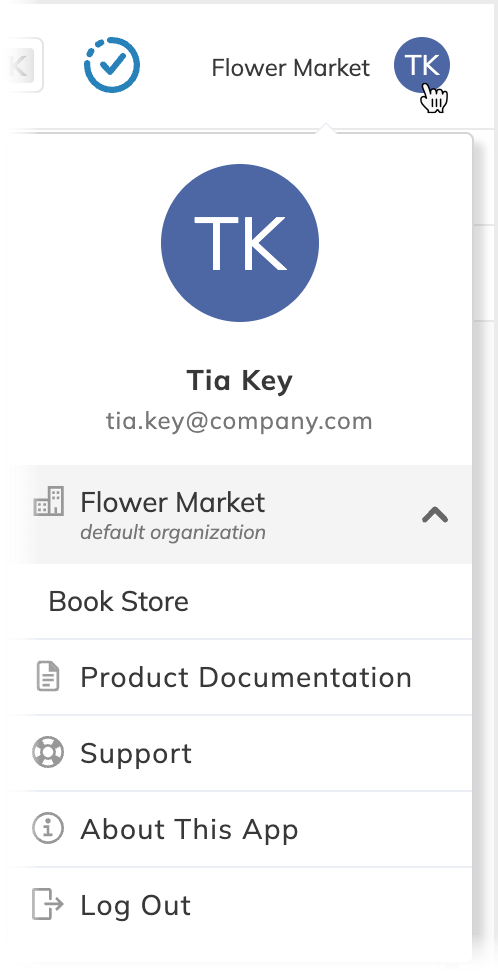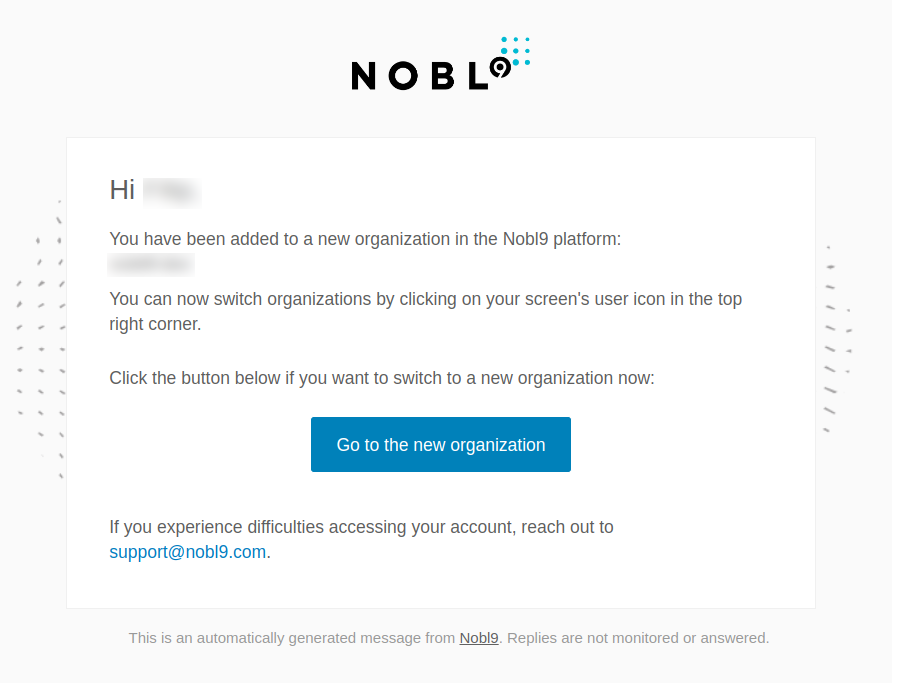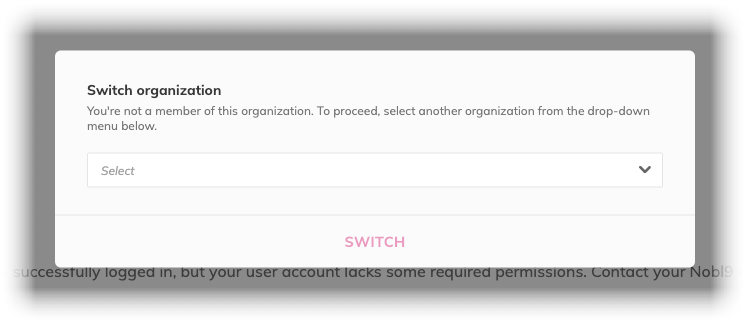Switching organizations
As a part of this feature, Nobl9 offers the ability to toggle between organizations easily and securely.
For example, Nobl9 users can leverage this feature to switch between their production and sandbox organizations to experiment with the Nobl9 Platform and their SLOs in a safe environment that doesn’t disrupt their production environment and SLOs.
Create an organization
You can request to create a new non-production organization:
-
Upon registering to Nobl9
-
By contacting Nobl9 support
Manage your organizations
You can identify the organization you’re currently in by checking the label in the top-right corner of your screen, next to your user’s icon:

You can switch between different organizations you’re assigned to in the UI or via sloctl.
Switch organizations in the UI
To switch organizations in the UI:
-
Click your user icon in the top-right corner of the screen.
-
In the drop-down menu, click the organization's name with a caret icon next to it:

Image 2: Organization switcher -
Choose the organization you’d like to switch to and click it.
You can also switch organizations using deep links.
Switch organizations in sloctl
You can also switch through organizations by using sloctl config commands. For more details, refer to sloctl user guide.
Use the sloctl config add-context command to add a new organization context to sloctl.
For example, to preview available organizations, use the sloctl config get-contexts -v command, which will produce the following output:
All available contexts: [production, sandbox]
Context: production
ClientID: # secret
ClientSecret: # secret
Project: default
Organization: production
Context: sandbox
ClientID: # secret
ClientSecret: # secret
Project: default
Organization: sandbox
Invite users to an organization
Organization admins can invite users to an organization:
- Switch to the organization you want to invite users to.
- Go to Settings > Users.
- Add the users you want to invite, one at a time.
Invitation emails
Invited users will receive the following e-mail from Nobl9:

When a user clicks the button link, they can either:
- Manually switch to the organization by clicking on their screen’s user icon in the top-right corner of the app:

- Accept a prompt from the Nobl9 Platform to change their current organization:

After completing one of the above steps, users can leverage resources within the selected organization per the assigned role.
Switching organizations - rules at glance
Deep links and switching organizations
The ID of the current organization is stored in the URL that you can check in your browser’s address bar. The following link shows an example of a deep link to the main page of the Service health dashboard in the production organization:
app.nobl9.com/service-health?org=production&page=1
The org parameter notes
- • The specified organization doesn't exist, or
- • You have no access to the specified organization, then
Deep links without the org
parameter automatically redirect to a default organization,
which is individual for every user.
When a user has no access to the organization specified with the org parameter,
they cannot access the indicated resource.
You can switch organizations with deep links.
For this, replace the value of the org parameter with the required organization ID in the address bar.
When you switch organizations with the deep link, and:
You're redirected to the Need permission screen.
Additionally, you are prompted to select an organization available for you:

You can’t migrate SLOs between organizations and retain their historical data.